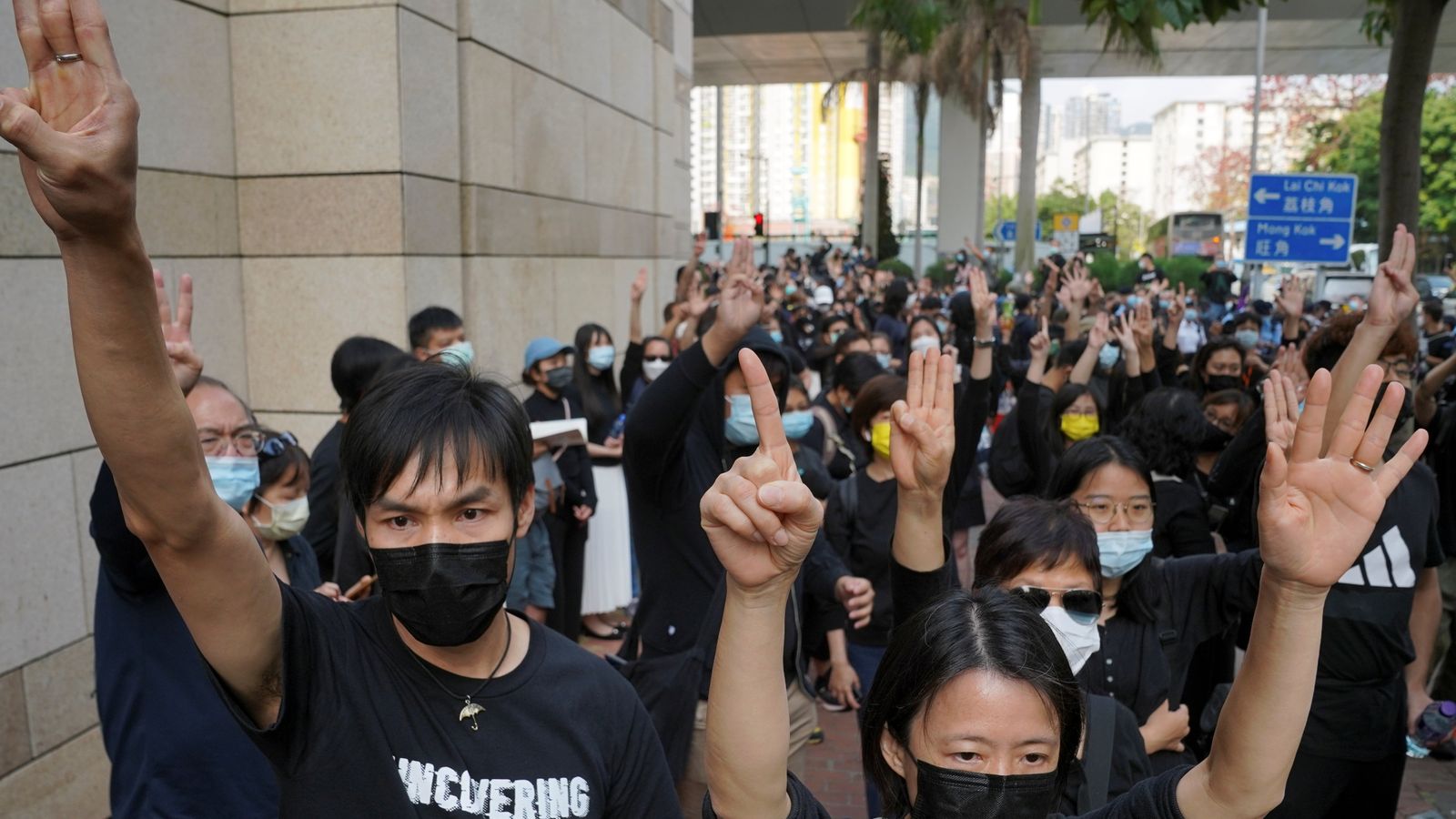Foreign Secretary Dominic Raab has made his strongest criticism yet of China’s campaign to increase its control over Hong Kong.
Beijing is in a “state of ongoing non-compliance” with the Sino-British Joint Declaration, which established how the territory would be governed after it was handed to China in 1997, he said.
Mr Raab condemned China’s decision to impose “radical” changes which reduce the role of the public in picking the territory’s leaders – instead giving a pro-Beijing committee power to appoint more legislators.
:: Subscribe to Into The Grey Zone on Apple Podcasts, Spotify, Spreaker
He said the move was part of a “pattern designed to harass and stifle all voices critical of China’s policies” and marked the third breach of the legally-binding declaration in less than nine months.
Mr Raab said in a statement: “The Chinese authorities’ continued action means I must now report that the UK considers Beijing to be in a state of ongoing non-compliance with the Joint Declaration – a demonstration of the growing gulf between Beijing’s promises and its actions.
“The UK will continue to stand up for the people of Hong Kong. China must act in accordance with its legal obligations and respect fundamental rights and freedoms in Hong Kong.”
The “candidate qualification review committee” will be established to vet candidates for election to Hong Kong’s parliament, China’s legislative council said earlier this week.
Chinese officials have said that the changes will ensure “patriots” are in control of Hong Kong, delegates to the annual Chinese National People’s Congress (NPC) were told.
Please use Chrome browser for a more accessible video player
Critics say that the move is part of a wider effort by China to undermine the principle of “one country, two systems” – the constitutional arrangement where Hong Kong has a different governmental and legal system to mainland China.
China’s attempts to exert more control over Hong Kong led to widescale pro-democracy protests in 2019 and 2020.
Initially in response to a highly controversial plan to allow extraditions to mainland China, they later became a movement seeking to fight China’s growing authority and aims.
Please use Chrome browser for a more accessible video player
Millions of people, especially young people, took part in marches, and while many have been peaceful, some have turned violent, as clashes with security forces became commonplace.
Mr Raab said earlier this year that China’s imposition of the national security law in Hong Kong – which makes it easier to punish protesters – constituted a “clear and serious breach” of the Joint Declaration contrary to international law.
The Sino-British Joint Declaration, signed in 1984, made clear that Hong Kong’s high degree of autonomy, rights and freedoms would remain unchanged for 50 years, Mr Raab has said.






















